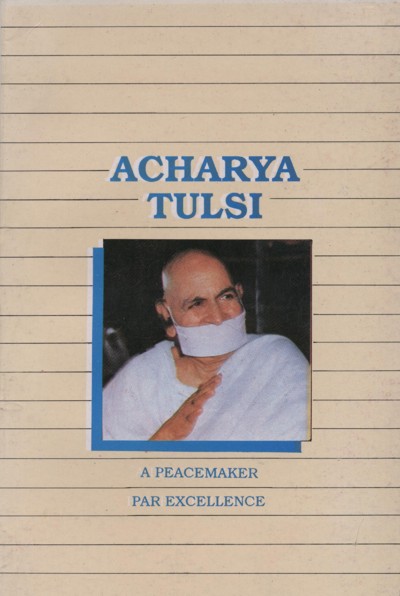The story of the life of Anuvrat Anushasta - the saint who marches barefoot exhorting people to give up violence and hatred - is in truth the story of a noble soul, a peacemaker par excellence. His neighbourhood always resounds with the words:
A human being is a human being first. He may be a Hindu or a Muslim only after that.
The name of this great man is Acharya Tulsi, a great exponent of human religion in this century. He has added a new context to Ved Vyas's[1] view that man is the finest of all the living beings of the world. Therefore he deserves to be pardoned for whatever he does. Acharya Tulsi has changed this concept.
Man's excellence lies in his ability to judge what is right. He is imbued with discretion which enables him to exercise self-control. He has in him the ability to give up what he deems fit to be abandoned and take in what he thinks useful. He can make his character sublime.
Some people who did not know Acharya Tulsi asked him, "Who are you?" He introduced himself in the following words:
I am a human being first and then a religious man. As regards my being a Jain and Head of a Jain sect, I put these positions in the third and fourth places, respectively.
The sect is relegated to the fourth place. People who accord the first place to their sect only cover the light of religion with a veil of ashes. Acharya Tulsi has revitalized religion with his new concept. The secret of the incessant flow of vitality lies in his personality composed of the atoms of generosity.
Fair complexion, medium stature, imposing forehead, large shining eyes, long ears - it is the outward visual image of his personality which fascinates anyone even at first sight. A cheerful disposition, inborn purity, a feeling of equanimity towards all, subtle perception of spiritual love, broad thinking, an unruffled state of mind even in the midst of hostile opposition and complete absence of parochial, sectarian, racial and linguistic narrowness sum up his inward personality which, despite being invisible, reveals itself from time to time.
 Yuvacharya Mahaprajna
Yuvacharya Mahaprajna
